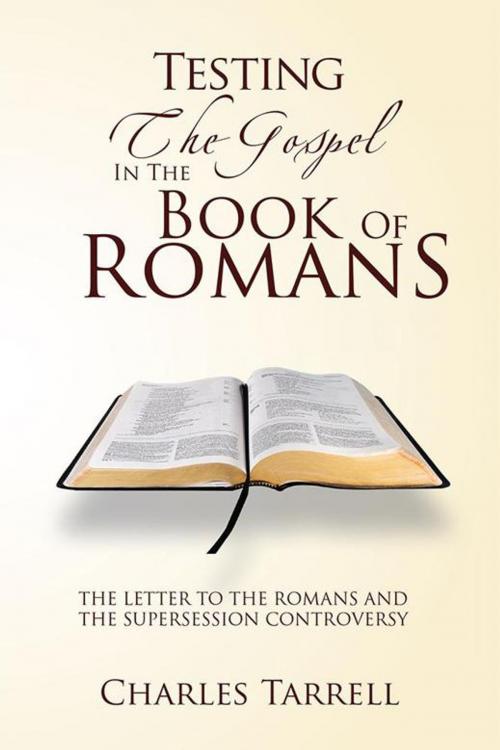Testing the Gospel in the Book of Romans
The Letter to the Romans and the Supersession Controversy
Nonfiction, Religion & Spirituality, Theology| Author: | Charles Tarrell | ISBN: | 9781465343765 |
| Publisher: | Xlibris US | Publication: | August 22, 2011 |
| Imprint: | Xlibris US | Language: | English |
| Author: | Charles Tarrell |
| ISBN: | 9781465343765 |
| Publisher: | Xlibris US |
| Publication: | August 22, 2011 |
| Imprint: | Xlibris US |
| Language: | English |
Supersessionism is deeply rooted in both Roman Catholic and Protestant theology and is as old as the church. It is the belief that the church is the new Israel, the true Israel, and as such has displaced or superseded ethnic Israel. Throughout the history of the church it has been commonly held that the covenants God made with Israel and the promises God gave to that nation now belong to the Christian church. The supersession controversy is not an obscure theological debate of interest only to a few Biblical scholars. It involves questions of fundamental importance. Does the God of the Christian Scriptures keep His promises? What are the rules that guide our interpretation of Scripture? Is Christian theology responsible for the horrors of anti-Semitism in Christian lands? The Biblical focus of this controversy is the 11th chapter of the book of Romans. There the Apostle Paul courageously addresses the supersession issue. Tarrell invites the reader to feast on the riches of Pauls teaching on the atonement (Romans 1-8) and to celebrate so great a salvation. But he also invites the reader to embrace Pauls teaching about Israel (Romans 9-11). Gods gift of salvation is precious and is thoroughly explained in the first 8 chapters of Romans. But to prove the thesis of the book of Romans Paul tackles the most daunting problem of all, the apparent inability of God to fulfill the promises He made to the nation of Israel. Bringing up the problem of Israel is a gutsy move. But it is the problem that must be addressed.
Supersessionism is deeply rooted in both Roman Catholic and Protestant theology and is as old as the church. It is the belief that the church is the new Israel, the true Israel, and as such has displaced or superseded ethnic Israel. Throughout the history of the church it has been commonly held that the covenants God made with Israel and the promises God gave to that nation now belong to the Christian church. The supersession controversy is not an obscure theological debate of interest only to a few Biblical scholars. It involves questions of fundamental importance. Does the God of the Christian Scriptures keep His promises? What are the rules that guide our interpretation of Scripture? Is Christian theology responsible for the horrors of anti-Semitism in Christian lands? The Biblical focus of this controversy is the 11th chapter of the book of Romans. There the Apostle Paul courageously addresses the supersession issue. Tarrell invites the reader to feast on the riches of Pauls teaching on the atonement (Romans 1-8) and to celebrate so great a salvation. But he also invites the reader to embrace Pauls teaching about Israel (Romans 9-11). Gods gift of salvation is precious and is thoroughly explained in the first 8 chapters of Romans. But to prove the thesis of the book of Romans Paul tackles the most daunting problem of all, the apparent inability of God to fulfill the promises He made to the nation of Israel. Bringing up the problem of Israel is a gutsy move. But it is the problem that must be addressed.















